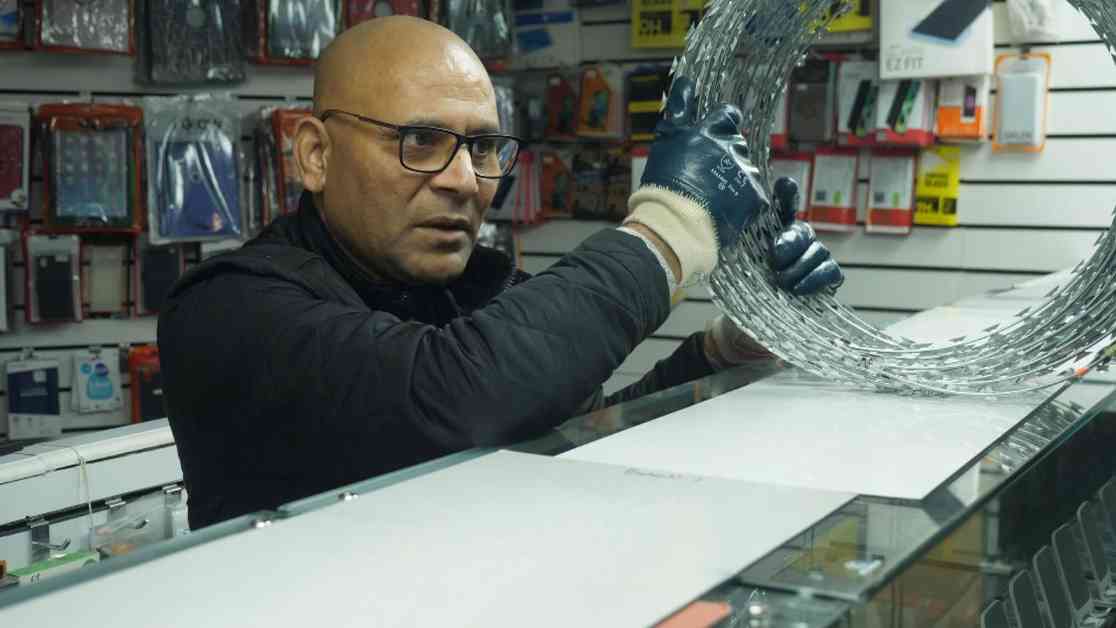The streets of Parliament Road in Middlesbrough became the center of national attention on one Sunday in August when a peaceful protest turned into a riot. Hundreds of people, many masked, engaged in destructive behavior, targeting livelihoods and businesses in the area. This incident left a lasting impact on the community beyond physical damage.
Pervaz Akhtar, a long-time resident of Middlesbrough, faced repeated burglaries at his phone shop. In response, he now spends half an hour every evening setting up razor wire around his shop for protection. Despite these measures, he still feels unsafe and is considering selling his business due to the ongoing threat of violence.
Mr. Akhtar’s family was also directly affected when rioters damaged his home and car. This traumatic experience has left his young son fearful and anxious about potential future incidents. Similarly, another resident named John, originally from Ghana, still deals with the aftermath of the riots, with his property’s front window boarded up more than two months later.
In the midst of these challenges, community organizations like Streets Ahead For Information play a crucial role in supporting residents. The charity offers essential services to diverse community members, including low-cost food shops that are in high demand. The impact of the riots has left many residents feeling anxious and concerned about their safety.
For the charity’s operations manager, Kim May, the focus is not just on physical repairs but on addressing the deeper mental health and social issues within the community. She emphasizes the importance of supporting individuals’ well-being, tackling poverty, and improving healthcare services in the area. By providing a listening ear and much-needed support, organizations like Streets Ahead aim to help residents heal and rebuild after the traumatic events.
Looking ahead, the community in Middlesbrough faces the task of coming together to address the root causes of the unrest and provide lasting solutions to support those affected. Through a holistic approach that prioritizes mental health, poverty alleviation, and community well-being, the hope is to restore a sense of safety and unity in the neighborhood.













